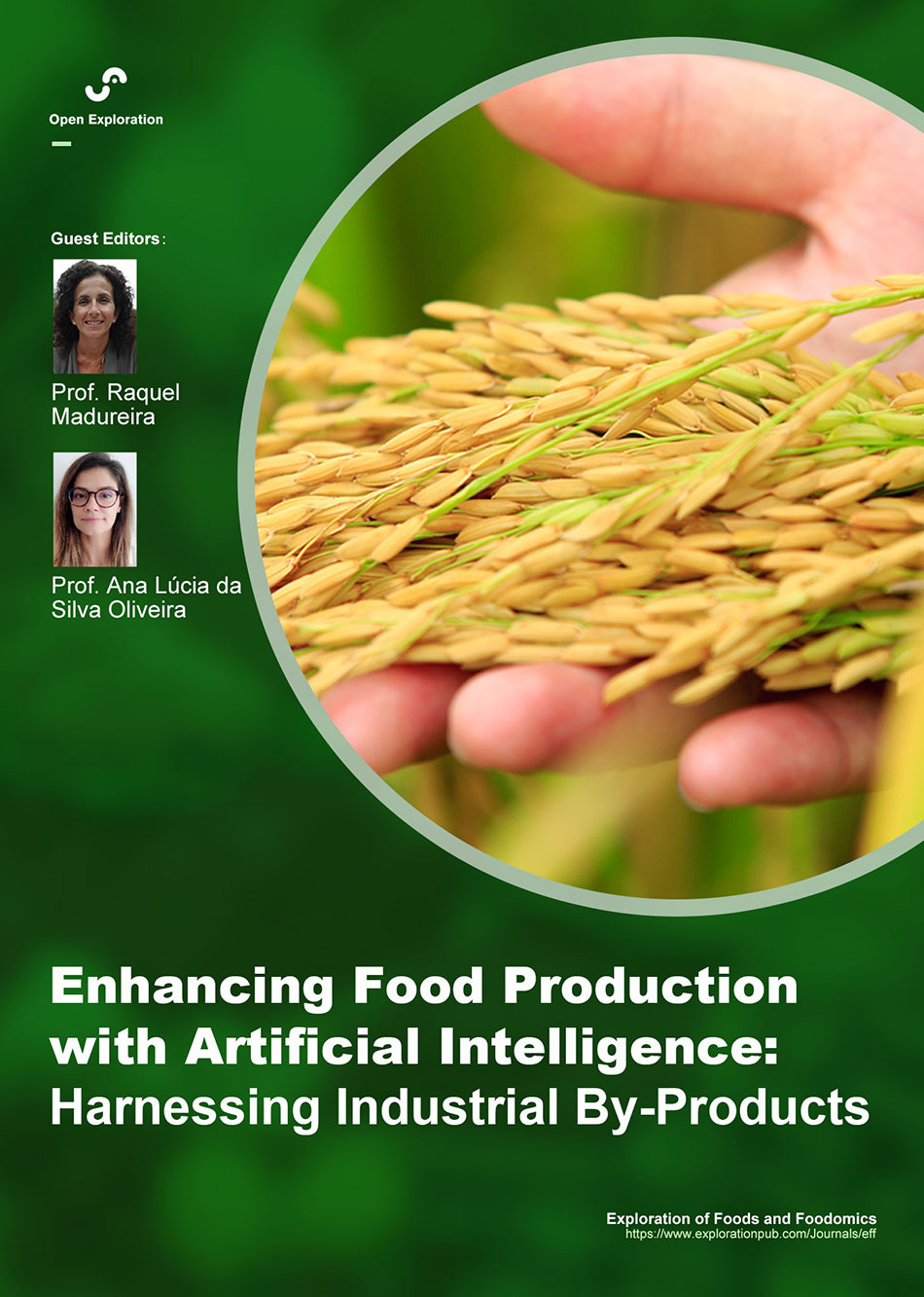
Enhancing Food Production with Artificial Intelligence: Harnessing Industrial By-Products
Guest Editors
Raquel Madureira E-Mail
Universidade Católica Portuguesa, CBQF - Centro de Biotecnologia e Química Fina – Laboratório Associado, Portugal
Research Keywords: microbiome; gut; skin; bioactivities; waste valorization; circular economy; sustainability; food and cosmetics formulation
Ana Lúcia da Silva Oliveira E-Mail
Universidade Católica Portuguesa, CBQF - Centro de Biotecnologia e Química Fina – Laboratório Associado, Portugal
Research Keywords: polyphenols; phytochemicals; extraction techniques; chemical characterization; predictive models; food formulation; data analysis
About the Special lssue
This special issue will cover and provide a concise overview of the potential applications of artificial intelligence (AI) in the realm of food production, with a specific focus on the utilization of industrial by-products. The modern food industry faces several pressing challenges, including the need for sustainability and resource optimization. Industrial by-products, often underutilized or discarded, offer a promising resource to address these challenges. This study explores how AI technologies can be leveraged to harness the untapped potential of industrial by-products in the food sector.
AI presents a valuable toolbox for optimizing resource management, enhancing product development, and streamlining production processes. Machine learning algorithms can analyse data from various sources, enabling predictive modelling and decision support for the efficient use of industrial by-products in food applications. This, in turn, leads to cost & waste reduction, and an environmentally sustainable approach to food production.
The integration of AI in the food industry has the potential to revolutionize the way we produce and consume food. This special issue highlights the key role that AI plays in maximizing the value of industrial by-products, ultimately contributing to a more sustainable and efficient food production ecosystem.
Keywords: artificial intelligence; food production; industrial by-products; sustainability; resource optimization; predictive modelling; waste reduction; sustainable food industry